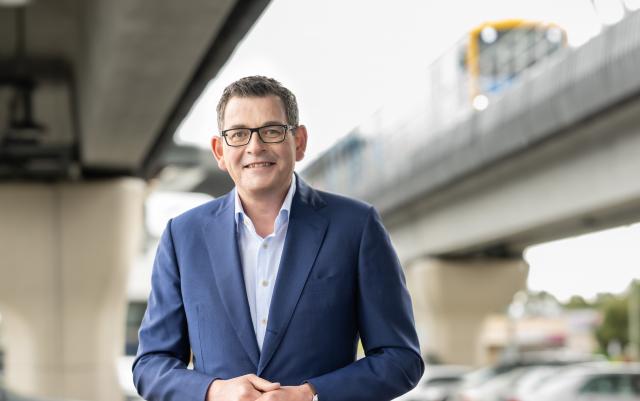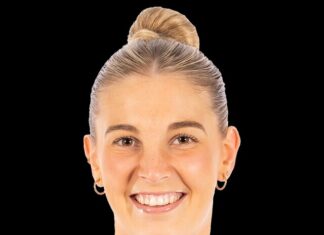Regional Victoria will not host the 2026 Commonwealth Games with premier Daniel Andrews this morning announcing the cost associated with the event was too high.
An initial budget of $2.6 billion was pledged, but Premier Andrews said the cost had blown out to more than $6 billion.
“We were pleased to be asked to host the 2026 Commonwealth Games – but not at any price,” Premier Andrews said.
“I think all Victorians would agree that more than $6 billion for a 12-day sporting event just doesn’t make sense.
“The Geelong community has told us that more places to live and more places to stay across regional Victoria is what really matters – so that’s exactly what we’ll deliver.”
The state government will push ahead with legacy projects such as the construction of gymnastics and aquatics centres in Waurn Ponds and Armstrong Creek.
The Games were expected to bring 100,000 people to the region according to Minister for Commonwealth Games delivery Jacinta Allan.
In April Minister for Commonwealth Games legacy Harriet Shing said the 2026 Games would host nine sports in Geelong and is estimated to contribute more than $3 billion to Victoria’s economy.
Geelong will still get a new indoor sporting complex at Waurn Ponds and an aquatics centre in Armstrong Creek.
Banyul-Warri Fields in Torquay will get a new training pitch and permanent seating and Stead Park – the home of Geelong Hockey – will see upgrades to their pavilion, a new pitch and new seating.
The state government will spend $1 billion on 1300 new homes in Victoria, including new permanent homes in Geelong for locals, not visiting athletes.
The new homes will include a mix of social and affordable housing, the government said.
The state will spend $150 million on a Regional Tourism and Events Fund.
Geelong Region Alliance (G21) CEO Giulia Baggio said the news came as a shock to the community which “had been looking forward to the opportunity to put an international spotlight on Geelong and the G21 region”.
“An enormous amount of time, effort and money has been invested in and around Geelong for the 2026 Commonwealth Games, and this momentum must not be lost,” she said.
“We must refocus our energy on delivering the housing, transport and sporting infrastructure so desperately needed by our rapidly growing communities.
“G21 welcomes the Victorian government’s promise of a $2 billion-dollar regional infrastructure package, although it’s no substitute for the huge economic and social uplift the Games would have provided.
“The repurposed investment in sporting facilities, tourism and affordable and social housing must be securely tied to the Geelong region and delivered without delay. We want to see these projects listed in the Budget forward estimates and construction timelines honoured. The Victorian government needs to keep the foot to the pedal and deliver for our communities.
“In particular, the G21-Geelong region urgently needs a large proportion of the promised $1 billion social and affordable housing fund. The lack of housing has caused a chronic shortage of workers, and this is holding back our economic development at a time when Geelong should be booming.”
Ms Baggio said an opportunity had been lost to showcase the region’s cultural identity, promoting First Nations’ culture and providing opportunity for locals and visitors from around the world to learn of the history and storytelling of the Wadawurrung traditional owners.
Victoria Tourism Industry Council CEO Felicia Mariani said that while the cancellation of the Games was disappointing, it was not a surprise.
“With the plans to host these Games in five regions across the state, this project faced many challenges from the outset. From the perspective of housing spectators and athletes, to managing the logistics and transport arrangements to move people across the state, the hurdles to overcome in delivering this approach have been highly ambitious, particularly considering the tight timelines to March 2026.
“While the initial budget of $2.6 billion to host the Games was allocated, it became clear that building infrastructure in five regional locations was a monumental challenge that would cost far more than initially predicted. The host regions will suffer, not just from the visitors they expected to welcome in this period, but also the global exposure they expected to receive.
“The biggest risk right now for Victoria will be in managing the reputational fallout as a destination for hosting major international events. Pulling the pin at such a crucial time on a major event like this will create concern that needs to be managed carefully.
“It is welcome to see that a $2 billion package of support has been made available for those regions and we hope that the investment will be directed where it is most needed.”
Regional Cities Victoria Chair Cr Andrea Metcalf said the promised Commonwealth Games was an opportunity to showcase regional Victoria to the world, better connect regional communities with each other, and gain long-term value from tourism, job creation, and attracting skilled workers to our regional cities.
“The opportunity to host a once-in-a-lifetime event in regional Victoria has been something our cities and regional communities embraced and welcomed since Commonwealth Games Australia and the Victorian government submitted the bid,” Cr Metcalf said.
“The 2026 Commonwealth Games promised flow-on benefits for every corner of the state. Outside of the hub cities, this now appears lost.
“We look forward to seeing details of the proposed state-wide tourism package but recognise this will not deliver the same benefits as broadcasting the best of regional Victoria into billions of lounge rooms around
the world.
“We are pleased that the infrastructure legacy across Ballarat, Bendigo, Geelong, the Latrobe Valley and Shepparton will still be delivered. But we reiterate our call for repairs and upgrades to sporting facilities in other regions.”







